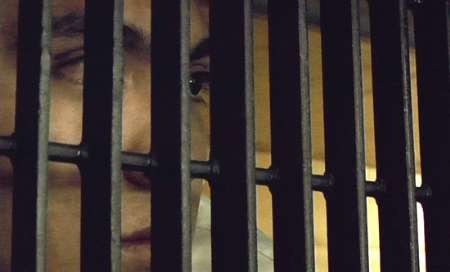Where Would we be Without Britain's Fine, Upstanding Criminals?
Modesty? What modesty? said the diamond thief to the tax evader

A survey carried out by scientists at the University of Southampton has revealed that prisoners may be the most morally astute members of society - or at least the most arrogant.
A total of 79 participating inmates believe themselves to be "kinder" and "more trustworthy" than the rest of the British population. While I'm sure that the majority of them would be kind enough to remove our jackets before stealing our wallets, it may be a slight stretch to assume that the finest examples of nobility inhabit the cells and exercise yards of British prisons.
The prisoners rated themselves highly in the following nine characteristics: morality, kindness, trust, honesty, dependability, compassion, generosity, self-control and law-abidingness. The villains believed they triumphed in each category and consistently gave themselves a high score in comparison to the rest of us, who may not be quite honest enough to have wound up in a prison cell.
Several of them did admit to falling short in one category though. It seems that bashfulness prevailed when it came to "law-abiding" as prisoners realised that evidence would suggest they were somewhat lacking in this trait.
But the inflated ego of the prisoner does not stop there. Although governmental statistics suggest that 44% of inmates are expected to re-commit crimes upon their release, most of those questioned believe they would beat these odds and stick to a straight and narrow lifestyle when they leave prison.
Southampton professors have labelled this as the 'better than average effect' in which, when placed in a particular environment for long periods of time, people are prone to rate themselves above average standards.
With the average UK prison sentence falling somewhere between one and four years, it's no surprise that one's understanding of admirable behaviour becomes slightly hazy, particularly when the only people around you are fellow criminals. The abnormal becomes normal and the immoral becomes rational.
Lock anyone in a room with a bunch of drug dealers long enough and they're bound to start asking if anyone would like a sprinkle of Ketamine on their cereal.
In the topsy-turvy world of these deluded lags stealing the £50 note out of that overweight man's pocket to stop him from going to buy his fourth Krispy Kreme of the day becomes an act of compassion.
Perhaps it's best to leave it to the Russian author Fyodor Dostoevsky, whose classic Crime and Punishment focused on the mental anguish and moral dilemmas of the criminal, to put the 21st jailbirds in denial straight. He wrote:
The cleverest of all, in my opinion, is the man who calls himself a fool at least once a month.
© Copyright IBTimes 2025. All rights reserved.





















